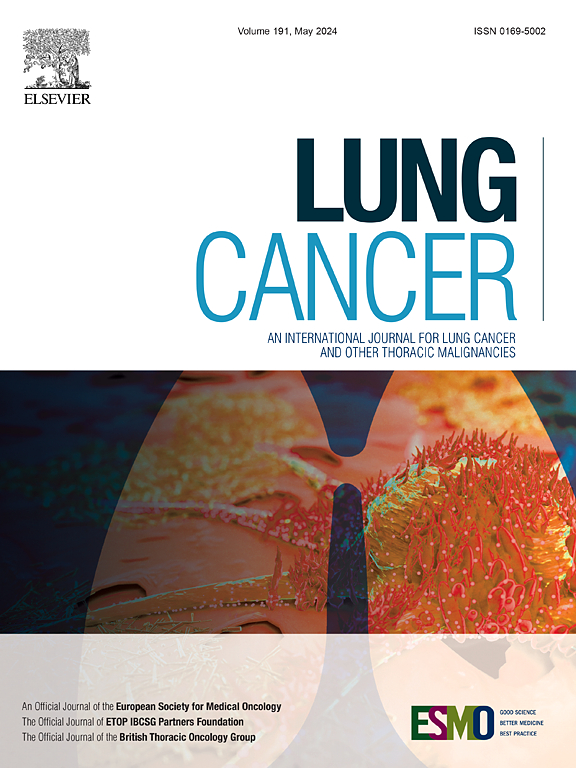晚期肺癌患者在医院的个人价值观交流:一项混合方法研究的结果
IF 4.4
2区 医学
Q1 ONCOLOGY
引用次数: 0
摘要
背景:指南建议讨论晚期癌症患者的治疗和护理目标,与他们的价值观和偏好保持一致,但这种方法往往没有在医院得到充分实施。为了探索转移性肺癌患者的个人价值观以及他们如何与医生沟通,德国大学肺癌中心进行了一项混合方法研究。方法采用人类价值观量表收集66例转移性肺癌患者的定量数据,在倾向评分与第9次欧洲社会调查的德国队列匹配后进行分组比较,半结构化深度访谈(n = 17),定性内容分析,并使用并列显示对数据进行整合。结果定量分析显示,患者优先考虑自我超越(普遍主义,仁慈,p = 0.02)和改变开放(自我导向,刺激,p = 0.03)的价值维度,在病情越晚期,自我导向越强。相比之下,与保守(顺从、传统、安全;p = 0.04)和自我提升(权力、成就;p = 0.02)相关的价值观则不那么重要。尽管有这些陈述的偏好,定性数据显示,在临床接触中,个人价值观和存在问题在很大程度上被忽视了。患者通常毫无疑问地接受医生的治疗建议,这表明在解决他们的价值观和偏好方面存在差距。结论我们的研究结果强调了医生在讨论患者价值和授权患者决策方面发挥积极作用的必要性。这些见解可以为价值评估工具和干预措施的发展提供信息,以改善共同决策和目标一致的护理。本文章由计算机程序翻译,如有差异,请以英文原文为准。
Communication about personal values of patients with advanced lung cancer in the hospital: results of a mixed-methods study
Background
Guidelines recommend to discuss the treatment and care goals of patients with advanced cancer in alignment with their values and preferences, yet this approach is often not adequately implemented in hospitals. To explore the personal values of patients with metastatic lung cancer and how they communicate them to physicians, a mixed-methods study was conducted at a German University Lung Cancer Center.
Methods
The study included quantitative data from 66 patients with metastatic lung cancer using the Human Values Scale, a group comparison after propensity score matching with the German cohort from the 9th European Social Survey, semi-structured in-depth interviews (n = 17), qualitative content analysis, and integration of the data using side-by-side display.
Results
The quantitative analysis showed that patients prioritized the value dimensions of self-transcendence (universalism, benevolence; p = 0.02) and openness to change (self-direction, stimulation; p = 0.03), with a shift toward stronger self-direction in more advanced disease. In contrast, values related to conservation (conformity, tradition, security; p = 0.04) and self-enhancement (power, achievement; p = 0.02) were less important. Despite these stated preferences, qualitative data revealed that personal values and existential concerns were largely overlooked in clinical encounters. Patients often accepted physicians’ treatment recommendations without question, suggesting a gap in addressing their values and preferences.
Conclusions
Our findings highlight the need for physicians to take a proactive role in discussing patient values and empowering them in decision-making. These insights can inform the development of value assessment tools and interventions to improve shared decision-making and goal-concordant care.
求助全文
通过发布文献求助,成功后即可免费获取论文全文。
去求助
来源期刊

Lung Cancer
医学-呼吸系统
CiteScore
9.40
自引率
3.80%
发文量
407
审稿时长
25 days
期刊介绍:
Lung Cancer is an international publication covering the clinical, translational and basic science of malignancies of the lung and chest region.Original research articles, early reports, review articles, editorials and correspondence covering the prevention, epidemiology and etiology, basic biology, pathology, clinical assessment, surgery, chemotherapy, radiotherapy, combined treatment modalities, other treatment modalities and outcomes of lung cancer are welcome.
 求助内容:
求助内容: 应助结果提醒方式:
应助结果提醒方式:


